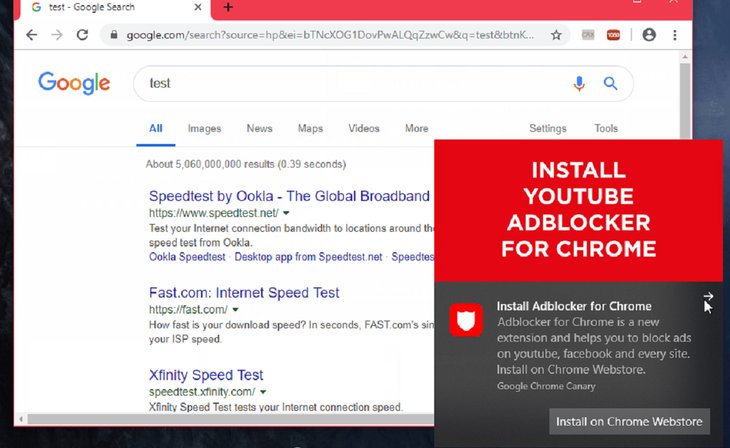Google May Block Ad Blockers And Everyone Is Mad About That
Mandy Seth - Jun 17, 2019

In a new update, Google decided to hinder the capacity of ad blockers on its Chrome, but only for free users of the search engine
- What Is Google Chrome Helper And How To Disable It
- Google To Support 1 Million Women Entrepreneurs In Rural India
- Google May Be Working On A Foldable Phone That Looks Like This
In a new update, Google decided to hinder the capability of Chrome’s ad blockers, and at the same time, announced that the change would not apply to subscribers of G Suite Enterprise, meaning that ad-free Chrome’s experience is only available for those who willing to pay for it. Given that Google is a company built on ad money, this decision makes sense.

However, a lot of the company’s users seems not to agree with it.
The Fact Behind The Move
Google’s users, especially developers who are in favor of Chrome-friendly, ad-blocker extensions, feel outraged with the proposed revisions of the company’s extension platform.
The backlash started last year, right after the launch of Manifest V3 - a set of changes to Google Chrome’s Extensions platform. An official note drawing all changes was published later last year. The latest update was reported on November 18, 2018.
In particular, the changes mentioned the blocking version of “webRequest” API with a limit on removing ad-blocking options, then make them observational only in most events.
The document notifies that those ad blockers should practice on “declarativeNetRequest” - a new API with better performance and privacy guarantees to its users.
However, as reported by Engadget, changes in Google’s Manifest V3 not only limit ad-blocker extensions from using the normal webRequest API to prevent ads but also requires developers to switch to a new API ( the “declarativeNetRequest”) that is not incompatible with the extension itself. Google did not say that it would block ad blockers, but it did not seem to support them either.
Google has confirmed that it would continue supporting these extensions, and here was what it said:
This means Google did intend to eliminate ad-blocking for Google Chrome, but only for those who do not subscribe to the G Suite Enterprise service.
Now Is Time For Paying
Initially, Chrome offered ad-free browsing experience for free. Currently, only enterprise-paid users have this privilege. This means, in order to maintain such a clean Chrome’s environment, users have to pay for not just a regular premium G-suite package, but the most expensive version - the Enterprise, which costs $25 per month for the subscription.

Google is asking its users to pay a hefty price to upgrade from the free level to an Enterprise G-suite. It is simple to understand why Google implement such changes given the huge amount of revenue generated from ads viewed by non-Enterprise subscribing users. There is a report revealing that about 40% of web-browsing users used ad blockers. That is a large number of users that Google is not making money from.
Unfortunately, Chrome is not the only browser in the world; there are so many others out there like Microsoft Edge and Firefox with free ad-blocking support. An ad-free experience may be great, but it isn’t such an easy service to sell after all.
Google only offers such experience to high-tier subscribers of the Enterprise package, not the regular low and mid-tier G-suite members (which cost $6 and $12 per user per month respectively). It is more likely that this proposed strategy does not only force its free users to find another alternative but also affected the other two lower-paying segments.
The loyalty of users for Chrome will be weakened severely as a sequent of this move. In the long term, it is not just customers Google is going to lose, but also the ad revenue in equivalent with the number of users watching them.
Featured Stories

ICT News - Jan 18, 2024
PDF Prodigy: Expert Techniques for Editing

ICT News - Aug 03, 2023
The Psychology of Casino Game Design

ICT News - May 17, 2022
3 Reasons your privacy gets compromised online

ICT News - May 11, 2022
Apple Devices For Sale

ICT News - Apr 12, 2022
Pin-Up Review India 2022

ICT News - Mar 29, 2022
Choosing between a shared and a dedicated server for gaming

ICT News - Mar 18, 2022
How The Internet Came Into Being

ICT News - Mar 17, 2022
The Best Gaming Tech of 2022

ICT News - Feb 16, 2022
Technologies that enable the development of online casinos with live dealers

ICT News - Feb 08, 2022

Comments
Sort by Newest | Popular